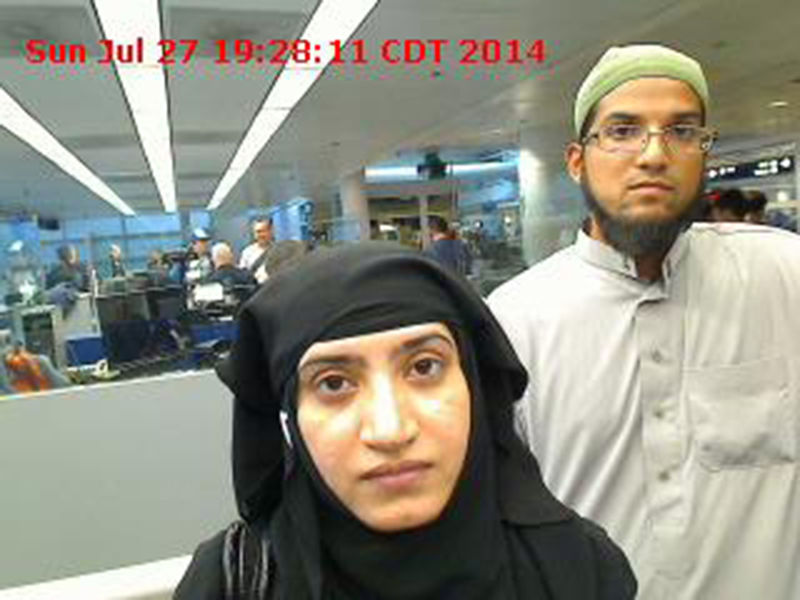By Fiona Ortiz
(Reuters) - United States immigration officials failed to obtain required proof from San Bernardino shooter Tashfeen Malik that she had met her U.S. citizen fiancé in person, but granted her a spousal visa anyway, a Republican congressman said on Saturday.
The new questions over the granting of the visa to Malik, raised by Congressman Bob Goodlatte of Virginia, suggest she was the beneficiary of a lapsed government vetting process now under intense scrutiny after the Dec. 2 attack that killed 14 people at a holiday party in the Southern California city.
"In order to obtain a fiancée visa, it is required to demonstrate proof that the U.S. citizen and foreign national have met in person. However, Malik's immigration file does not show sufficient evidence for this requirement," Goodlatte said in a statement.
Investigators say U.S.-born Syed Rizwan Farook, 28, and Malik, 29, became radicalized long before the shooting. They are believed to have been inspired by militant group Islamic State.
Goodlatte said his office conducted an investigation of how Malik obtained her spousal, or K-1, visa. They found that the official who reviewed Malik's application asked for more evidence that she had met her fiancé but it was never provided.
The Department of Homeland Security and for U.S. Immigration and Customs Enforcement did not immediately respond on Saturday to requests for comment.
U.S. officials previously said that U.S. authorities in Pakistan, Malik's home country, did not seek a full background security investigation on her because routine checks did not raise suspicions.
Well before he married Malik in August 2014, Farook had plotted mass casualty attacks with his friend and neighbor, Enrique Marquez, according to FBI interviews with Marquez, 24, who was arrested on Thursday and charged with conspiring to provide material support to terrorists.
Goodlatte said that Farook stated he had been together with Malik in Saudi Arabia, and supplied copies of passport pages with visas to enter Saudi Arabia. But, Goodlatte said, the passport stamps were never translated from Arabic to determine the dates on the visas.
Goodlatte said Malik entered Saudi Arabia approximately June 4, 2013, with a 60-day visa, though her exit date stamp is illegible. Farook's passport shows he was in Saudi Arabia Oct. 1-20 that same year.

"Even if Farook and Malik were in Saudi Arabia at the same time, this does not provide evidence that they met in person," said Goodlatte.